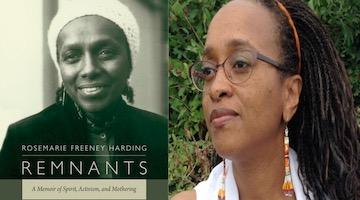American maneuvers in the Middle East have little to do with culture or religion and everything to do with capitalism.
“Palestine-Israel should be presented as a story about one people colonizing another with the assistance of the world’s sole superpower.”
In this series, we ask acclaimed authors to answer five questions about their book. This week’s featured author is Greg Shupak. Shupak has a PhD in Literary Studies and teaches Media Studies at the University of Guelph in Toronto. His book is The Wrong Story: Palestine, Israel, and the Media.
Roberto Sirvent: How can your book help BAR readers understand the current political and social climate?
Greg Shupak:My primary goal in The Wrong Story is for readers who are curious about Palestine-Israel but lacking detailed knowledge of or a firm position on the issue to come away with an understanding of the immense injustices inflicted on the Palestinians by Israel and its American patrons though I also hope that people who are well-versed in the subject will feel that my work helps sharpen their analysis.
That U.S role is a crucial dimension of the book. I hope The Wrong Story will clarify the character of American policy not only in Palestine-Israel but in the Middle East more broadly and further afield as well. The book attempts to show that American maneuvers in the Middle East have little to do with culture or religion and everything to do with capitalism. I strive to help readers understand that Palestine-Israel should not be viewed in isolation and that America’s lavish support for Israel must be seen in the context of the vital role that Israel has played in helping the American ruling class’ quest for primacy not only in the Middle East but also in Africa, Latin America, and East Asia.
What do you hope activists and community organizers will take away from reading your book?
First and foremost I hope that activists and community organizers will take from my book that it’s necessary to back Palestinian resistance in concrete ways, which for people living in the West chiefly means supporting the call to boycott, divest from, and levy sanctions against (BDS) Israel. Yet I would also like readers to see the Palestinian struggle as one crucial facet of the broader anti-imperialist movement that is badly needed in the west but, particularly in Anglo North America, barely exists. Stopping U.S-Israeli crimes against the Palestinians is a necessity that cannot be separated from the necessities of stopping the wars in Syria and Yemen, or from preventing a full-scale military attack on Iran or another American-Israeli aggression against Lebanon. In each of these cases, the U.S-Israeli ruling classes see opposition to their hegemony and have shown no hesitation about using as much violence as they can get away with in pursuit of their objectives. Nor is this problem confined to the Middle East as we see continued U.S hostility toward Venezuela, Cuba, North Korea, China, and Russia. Creating space for peoples all over the world to be able to determine their own futures entails giving them room to breathe and that’s infinitely more difficult when the empire is standing on their necks. I hope my book gives some insight into not only the urgency of this matter but also into how these various fronts are connected and thus how they can be acted upon.
We know readers will learn a lot from your book, but what do you hope readers will un-learn? In other words, is there a particular ideology you’re hoping to dismantle?
I hope that my book will help readers un-learn the ideologies of imperialism, colonialism, settler-colonialism, and capitalism. I seek to facilitate that by chronicling three commonplace stories about Palestine-Israel that are told in the media and demonstrating that each of these narratives is profoundly flawed: that “both sides” have suffered and are responsible for the absence of peace to comparable extents; that “extremists,” mostly from the Palestinian camp, need to be marginalized so that “moderates” can be empowered; that Israel has a “right to defend itself.” Instead of these approaches, I contend, Palestine-Israel should be presented as a story about one people colonizing another with the assistance of the world’s sole superpower and, prior to that, of its British precursor; given those dynamics, a more accurate accounting of Palestine-Israel would recognize the qualitative differences and causal relationship between mass Israeli violence in pursuit of subjugating Palestinians and stealing their land and Palestinian resistance that sometimes includes armed struggle, the right to which Palestinians are guaranteed under international law. Ideally, the book will encourage readers to think in similar terms about comparable issues that are beyond its immediate scope such as the colonization of the indigenous populations of the Americas.
Who are the intellectual heroes that inspire your work?
The intellectual heroes who have most directly inspired The Wrong Story include Nahla Abdo, Rabab Abdulhadi, Joel Beinin, Tariq Dana, Noura Erakat, Adam Hanieh, Rashid Khalidi, Deepa Kumar, Darryl Li, Karl Marx, Nur Masalha, Joseph Massad, Jonathan Nitzan and Shimshon Bichler, Robert McChesney, Ilan Pappe, Edward Said, Linda Tabar, Lisa Taraki, Sara Roy, Mandy Turner, and Rafeef Ziadah. Noam Chomsky is also a major influence on me though I strongly disagree with his assessment that the two state solution is the only practical way forward in Palestine-Israel, with most of his criticisms of the BDS movement, and with what seems to me to be his reluctance to prioritize the importance of the Palestinian refugees’ right to return to their homes. I am also a fiction writer and my PhD is in Literary Studies so I have many intellectual heroes who shape my thinking about Palestine and media coverage of it in more circuitous ways, such as Dionne Brand, Terry Eagleton, bell hooks, Stuart Hall, Raymond Williams, and a wide variety of novelists.
In what way does your book help us imagine new worlds?
I’d like it if outlining some of the ways that imperialism and colonialism have disfigured Palestine encourages readers to imagine the liberation of Palestinians and what steps can be taken to achieve that. More broadly I hope that spelling out the depravities of such systems of domination enables reflection on what a more just set of international relations would entail. For me that necessarily means thinking about a world emancipated from capitalism because, as I try to articulate in the book, it is capitalism that undergirds so many of the outrages committed against the Palestinians and the people of the Global South more generally.
“The mainstream media is part of the ruling class.”
The book also seeks to facilitate an understanding of the role of the commercial media system. I suggest that the mainstream media is a class project: such outlets are a part of the ruling class and sections of that class profit from supporting U.S imperialism, including the oppression and dispossession of Palestinians; this dynamic, I contend, is a major reason that media outlets frame their coverage in ways that are hostile to Palestinian liberation. My point is that the problems with the media are institutional and this goes far beyond their misrepresentation of Palestine-Israel. If people come away from the book with the conclusion that serving ruling class interests is an intrinsic feature of commercial media, I hope this will lead readers to envision (as I am sure many of them already are) what a better news media model would look like and how one can be built, and to reflect on the intimate relationship between transforming the media and transforming the entire society to post-capitalist, socialist future.
Roberto Sirvent is Professor of Political and Social Ethics at Hope International University in Fullerton, CA. He also serves as the Outreach and Mentoring Coordinator for the Political Theology Network. He is co-author, with fellow BAR contributor Danny Haiphong, of the new book, American Exceptionalism and American Innocence: A People’s History of Fake News—From the Revolutionary War to the War on Terror.
COMMENTS?
Please join the conversation on Black Agenda Report's Facebook page at http://facebook.com/blackagendareport
Or, you can comment by emailing us at comments@blackagendareport.com




















